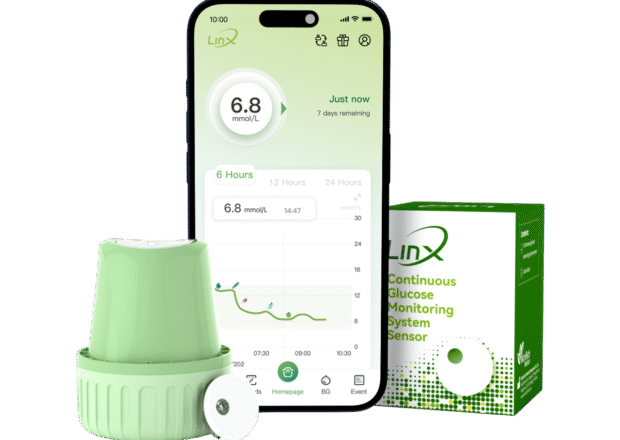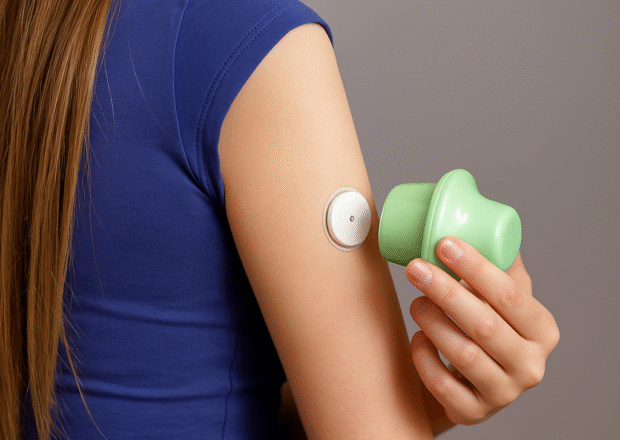What is glucose and why should it be monitored?
Glucose refers to the level of blood sugar present in the blood of a human or animal. This circulating glucose is the body’s preferred source of energy for cells, helping maintain essential cellular functions, tissues, and organs necessary for life. The level of glucose in the blood is strictly regulated by the body through different mechanisms—it must remain within a relatively narrow range to ensure well-being.
Glucose enters the bloodstream during the breakdown of carbohydrates in the digestive system. Therefore, blood sugar levels rise after meals, with hormones, including insulin, playing a key role in regulation. If insulin production is impaired, the body does not absorb enough energy, as insulin is necessary for glucose to enter the cells and replenish energy reserves in organs and tissues. In a healthy person, blood sugar levels return to normal (3.5–6.0 mmol/L) about 3–4 hours after eating.
Why is glucose level important?
Glucose, or blood sugar, is your body’s primary energy source. It directly affects our energy levels, concentration, physical performance, and overall health. If glucose levels are too high (hyperglycemia) or too low (hypoglycemia), it can lead to serious health problems, such as type 2 diabetes, heart disease, and vision impairment.
Effects of high blood sugar:
- Fatigue and weakness: Excess glucose in the blood can cause a lack of energy because the body cannot use glucose efficiently.
- Frequent urination and thirst: Due to high blood sugar, the body tries to expel excess glucose through urine, which can lead to dehydration.
- Vision problems: Prolonged high blood sugar can damage blood vessels in the eyes, causing impaired vision.
Effects of low blood sugar:
- Hunger and irritability: Low glucose levels can cause sudden energy deficiency, leading to hunger and mood swings.
- Shaking and dizziness: The body needs energy to function; when glucose levels drop too low, it can cause trembling and dizziness.
- Confusion: Glucose is the brain cells’ main energy source; low levels can impair cognitive functions, causing confusion and concentration difficulties.
Monitoring glucose levels
Monitoring glucose levels helps identify possible fluctuations in blood sugar, allowing the prevention of both hyper- and hypoglycemia risks. This is especially important for people with diabetes but is also useful for healthy individuals to prevent health problems and improve overall well-being.
How to monitor glucose levels?
- Measuring blood sugar with a glucometer: The most common method is to use a glucometer, which provides quick and accurate results.
- Healthy diet: A balanced diet with enough fiber, protein, and healthy fats helps maintain stable blood sugar levels.
- Regular physical activity: Physical activity increases insulin sensitivity and helps glucose move into cells, keeping blood sugar levels under control.
Conclusion
Monitoring blood sugar, or glucose levels, is an important part of a healthy lifestyle. It not only helps prevent serious health problems but also improves daily energy levels, concentration, and overall well-being. A balanced diet, regular physical activity, and, if necessary, blood sugar measurement are key factors in maintaining optimal glucose levels in the blood.

